In honor of the Academy’s 30th anniversary, former interns and student awardees reflect on their experience of being exposed to social insurance policy through our organization.
- Joshua Berman
- Deedee Bitran
- Regina Cavada
- Ismael Cid-Martinez
- Rachel Dolan
- Nathaniel Hendren
- Stephanie Kennedy
- Lauren Hersch Nicholas
- Jessie Ramey
- Jacqueline Risco
- Edmund Saw
- Georgianne Tiu
_____________________________________________________________________
Joshua Berman ![]() , Project Coordinator at Just Harvest, 2014 Nathan J. Stark Intern
, Project Coordinator at Just Harvest, 2014 Nathan J. Stark Intern
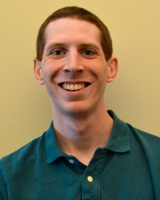
Coming from Syracuse University with a degree in Social Work, I wanted to bolster my academic experience by immersing myself in an issue that I am truly passionate about. Social insurance is the backbones of our public safety net and stands at the forefront of the fight against poverty. In fact, were it not for SSDI and SSI – which my family received after my father became disabled and my mother passed away – my family would have been faced with an impossible financial crisis.
The safety net works, but it can also be expanded to catch even more instances of hardship. Economic inequality may be the single most important issue for my generation, and I passionately feel it is an issue that can be addressed by supporting and enhancing social insurance programs. As an Academy Nathan J. Stark Fellow, I had the unique opportunity to be placed directly with the Academy, . This was the perfect fit for me. Not only did I get to hone skills in project management, event planning, and fundraising development, but I also got to work closely with and learn from policy experts with a full range of social insurance expertise. With those experiences, the weekly seminars, and the day-long Social Security & Medicare Learning Academies, I developed a strong foundation of understanding of social insurance programs.
Now, in my work with Just Harvest we work to connect families to public benefits like SNAP and the EITC, but understanding how these benefits function in a larger landscape of social safety net programs is invaluable. While our primary mission is as an anti-hunger organization, we focus our work on public benefits and income maintenance because we know that the fastest way out of hunger for low-income families is for incomes to increase. I cannot emphasize enough how important it is for current fellows in the Academy internship program to get a firm grasp on these programs and the issues they aim to address. Take full advantage of all of the wonderful learning opportunities the Academy provides and network with as many experts as possible. This is your chance to build a foundation as you work to increase knowledge and effectiveness of our social safety net!
♦
Deedee Bitran, Attorney at Shutts & Bowen LLP, 2015/2016 Law Student Writing Award Winner
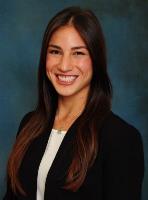
Receiving the Law Student Award for my research article – What is Due with a Due Date: Reasonable Pregnancy Accommodations in the Workplace – was an incredible honor and a wonderful experience that I will forever cherish. That same article subsequently received an award from the Employment Law Section of the New York State Bar Association and will be published this year in the Women’s Rights Law Reporter. The article proposed federal legislation mandating reasonable pregnancy accommodations by examining different state laws on the topic and crafting proposed federal legislation.
My advice to future award recipients interested in pursuing a career in the legal field with a focus on social insurance is to conduct extensive legal research in conjunction with drafting scholarship on proposed changes in the law. To make a better future for social insurance, it is critical to know the entire landscape of the law. When seeking to change the law with proposed legislation, it makes your proposal much stronger when you have examined whether similar or differing legislation exists at the local, state, or federal levels. Additionally, examining whether administrative agencies such as the EEOC have weighed in on the issue can be useful as persuasive authority. Taking the portions of various existing regulations or laws and crafting proposed legislation can truly make an impact on the legal landscape of our future.
♦
Regina Cavada ![]() , Program Assistant at Patient-Centered Outcomes Research Institute (PCORI), 2015 Washington Intern
, Program Assistant at Patient-Centered Outcomes Research Institute (PCORI), 2015 Washington Intern
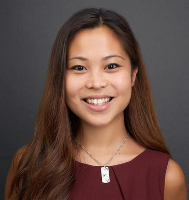 I initially wanted to be a NASI intern after taking a public policy course with one of my favorite professors, Dr. Jennifer Erkulwater, who’s also a member of the Academy. As I learned about Social Security, Medicaid, and Medicare tin her class, I was amazed by the complexity of social policies and programs in the United States and was excited to learn more about its implications on healthcare. Dr. Erkulwater encouraged me to apply for the Washington Internship on Social Insurance and I was excited for the opportunity to learn from people in the field.
I initially wanted to be a NASI intern after taking a public policy course with one of my favorite professors, Dr. Jennifer Erkulwater, who’s also a member of the Academy. As I learned about Social Security, Medicaid, and Medicare tin her class, I was amazed by the complexity of social policies and programs in the United States and was excited to learn more about its implications on healthcare. Dr. Erkulwater encouraged me to apply for the Washington Internship on Social Insurance and I was excited for the opportunity to learn from people in the field.
During the internship, I worked with AcademyHealth as a Health Services Research and Policy Intern. I helped with the development of a standardized method for identifying and communicating examples of high-impact and relevant health services research. I also attended intern academies, worked independently on a large project, conducted and synthesized research, communicated and reached out to key community partners and stakeholders, and networked with experts and inspiring people throughout DC. The Academy’s internship program equipped me with the skills and confidence to start at my new position with the Patient-Centered Outcomes Research Institute.
As I look back on my summer as an Academy intern, I can’t help but think how fast it went by. For current students in the internship program, my advice would be to take advantage of every opportunity the Academy presents – and not just the professional ones. Seize opportunities to develop your relationships and friendships with the interns in your program because the people you meet are passionate, smart, inspired, and interesting and there’s a lot to learn from each other as well.
♦
Ismael Cid-Martinez ![]() , Doctoral Student in Economics at The New School, 2014 Washington Intern
, Doctoral Student in Economics at The New School, 2014 Washington Intern
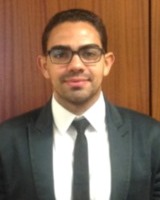 I applied to the Academy’s Washington Internship Program in 2014 with an interest in learning more about the link between social policy and economic growth. I had been working on issues of social policy abroad and retirement security domestically, so the experience with the Academy provided me with the opportunity I sought to complement my studies.
I applied to the Academy’s Washington Internship Program in 2014 with an interest in learning more about the link between social policy and economic growth. I had been working on issues of social policy abroad and retirement security domestically, so the experience with the Academy provided me with the opportunity I sought to complement my studies.
During my internship, I worked with the distinguished team at the Social Security Advisory Board (SSAB). I helped the SSAB with research and writing for memos and reports. As I work on my dissertation today, I think of my time at the Academy as a central part of my learning experience in graduate school. In 2015, Teresa Ghilarducci and I worked to provide the first estimates of the cost of retirement tax expenditures for all states in the U.S. I couldn’t have been part of this project without the strong foundation I established at the Academy. My advice to all incoming students is to take on as many tasks as possible and to meet as many members of the Academy family as possible. This family works day and night to ensure that our country is one that provides all working Americans with a fair sense of security from the vicissitudes of life. This work is central for the dynamism of our economy, and we ought to be a part of the debate in a manner that is informed.
♦
Rachel Dolan ![]() , Special Assistant to the Editor-In-Chief at Health Affairs, 2009 Washington Intern
, Special Assistant to the Editor-In-Chief at Health Affairs, 2009 Washington Intern
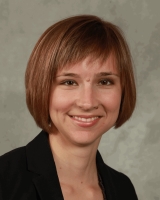
After my first year studying public policy at Georgetown University, I applied to be an Academy intern I wanted to gain experience and learn more about social programs like Medicare and Social Security. I also wanted to see what kind of jobs were available for people working in health policy, since I wasn’t quite sure what I wanted to do after I graduated.
I was assigned to the Institute for Health Policy Solutions, a very small group that worked a lot on small employer issues, state health policy, and pre-ACA insurance exchanges. Given that it was a small organization, I was able to work directly with the executive staff. Rick Curtis and Ed Neuschler had decades of experience in the field and shared a lot with me. They were also great mentors. I continued working there after my internship ended and through my last year of graduate school. The timing was such that I was at the Institute through the authoring and passing of the Affordable Care Act.
When I graduated, I was knowledgeable about the ACA, insurance exchanges and other issues that were on the front burner of the nation’s health policy discussions. The experience was invaluable. My advice to future Academy interns would be that you never know who you will meet that will make a difference in your career and your future. The Academy internship is a great way to be exposed to a lot of great information and people, so take advantage of it.
♦
Nathaniel Hendren ![]() , Assistant Professor of Economics at Harvard University, 2014 John Heinz Dissertation Award Winner
, Assistant Professor of Economics at Harvard University, 2014 John Heinz Dissertation Award Winner
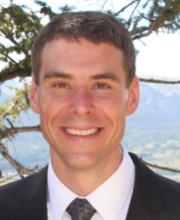
Winning the John Heinz Dissertation Award allowed me to pursue my research on the economic forces that prevent private markets from efficiently providing social insurance. My work has explored how asymmetric information prevents the existence of private markets for health-related insurance markets for those with pre-existing conditions and also the existence of private unemployment insurance markets. In subsequent work, I show how these micro-foundations for absence of private markets leads traditional methods to under-state the social value of government intervention in providing social insurance.
♦
Stephanie Kennedy ![]() , Research Associate at AcademyHealth
, Research Associate at AcademyHealth ![]() , 2013 Nathan J. Stark Intern
, 2013 Nathan J. Stark Intern
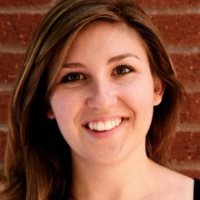
As the Nathan J. Stark Intern for Non-Profit Development onsite at the Academy, I worked closely with the development and communications teams on fundraising, stewardship, events management, membership engagement, and marketing. Working across various departments taught me firsthand how closely teams at a nonprofit must work together in order to achieve its mission. At a matrixed organization where I currently work like AcademyHealth, the ability to collaborate with other teams is essential to our impact within and beyond the field of health services research. Harnessing the collective expertise of our staff (and members!) helps us better support the production and use of evidence to inform policy and practice. This notion of active co-creation is a practice I first observed at the Acadmey and have applied to my career ever since.
I’d tell new interns not to be afraid to ask questions. Whether it’s to clarify something, ask for help, or simply satisfy a curiosity – questions are the best way to get the most out of your intern experience. One day, you’ll be the one answering them!
♦
Lauren Hersch Nicholas ![]() , Assistant Professor of Health Policy & Management at the Johns Hopkins Bloomberg School of Public Health, 2009 John Heinz Dissertation Award Winner
, Assistant Professor of Health Policy & Management at the Johns Hopkins Bloomberg School of Public Health, 2009 John Heinz Dissertation Award Winner
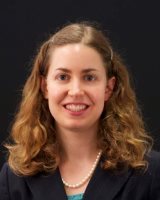
Receiving the Academy’s John Heinz Dissertation Award was a great honor. One of my dissertation committee members pointed out how many of the previous winners had made major contributions to social insurance research and policy, so I should aspire to do the same in my career. I took that to heart, and some of my most exciting times as a researcher have involved translating research findings into small changes in Medicare and Social Security policy. Demographic and policy factors pose a lot of interesting challenges for the evolution of America’s social insurance programs, and there’s a lot of room for new research to shape these changes. I hope that many junior scholars start working on social insurance topics and contribute to the debate. I would encourage students to be entrepreneurial in finding data to address questions that have been difficult to answer, and not to hesitate to bring in mentors from other institutions as needed–the Academy membership roster can be a great resource!
♦
Jessie Ramey ![]() , Director of the Women’s Institute and Associate Professor of Gender and Women’s Studies at Chatham University, 2010 John Heinz Dissertation Award Winner
, Director of the Women’s Institute and Associate Professor of Gender and Women’s Studies at Chatham University, 2010 John Heinz Dissertation Award Winner
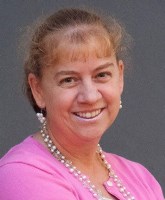
Winning the John Heinz Dissertation Award from the National Academy of Social Insurance has been incredibly important to my career as a historian specializing in gender, race, working families, and U.S. social policy. My study went on to win two other national awards and was published as Child Care in Black and White: Working Parents and the History of Orphanages (University of Illinois Press, 2012). The honor from the Academy supported my application to the American Council of Learned Societies (ACLS), which awarded me a New Faculty Fellowship to support two years of teaching and research at the University of Pittsburgh. During this time, I launched my second project on public education policy, which took me to the White House twice, and resulted in a wide range of publications and presentations in academic journals, conferences, and the national press. For this work, I was recognized with the Iris Marion Young Award for Political Engagement, named one of the top “people to know” by the Pittsburgh Post-Gazette, and one of “5 People Making Pittsburgh a More Livable City for All,” by NEXT Pittsburgh. I am currently the Founding Director of the Women’s Institute at Chatham University and Associate Professor of Women’s and Gender Studies. I hope that future John Heinz award recipients continue to help educate the public and connect the dots between our nation’s social insurance programs, social justice, and the common good.
♦
Jacqueline Risco, Manager at Avalere Health, 2013 Washington Intern
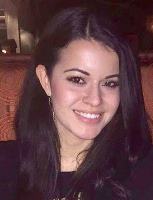
I have always been deeply passionate about improving access to affordable and quality healthcare, and reducing health disparities among underserved minority groups in the United States and around the world. Therefore, when I had to complete an internship for my MPH program at the University of Florida, I was immediately drawn to the Academy’s program. It seemed that the organization shared my same values and passion for solving the complex healthcare challenges that this country is faced with.
My Academy placement was with the Medicaid and CHIP Payment and Access Commission (MACPAC). During my time there, I conducted the preliminary stages of a research project on emergency department visit reduction programs. To do this, I had to learn how to: 1) conduct market research/environmental scans; 2) development a project proposal; and 3) develop a statement of work (SOW)/request for proposals (RFP) in order to disseminate to agencies looking to conduct this research on behalf of MACPAC. The final project was included in MACPAC’s semi-annual “Report to Congress on Medicaid and CHIP.” The health policy skills I learned at MACPAC during my Academy internship truly provided me with a strong foundation from which I was able to jumpstart my career. Through the Academy’s program, I was also able to meet a wonderful group of new lifelong friends! My advice to current students would be to try and open yourself up to as many new and exciting opportunities as possible, e.g., attend all Academy events, attend other events around D.C., make new friends who work for different organizations, etc.!
♦
Edmund Saw ![]() , J.D. Candidate at the University of Virginia School of Law, 2013 Washington Intern
, J.D. Candidate at the University of Virginia School of Law, 2013 Washington Intern
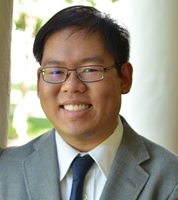
I was an intern at the National Academy of Social Insurance in 2013 to research Social Security and use that knowledge to help educate the public. I had the opportunity to help write briefs, assist in outreach, and edit the report, Workers’ Compensation: Benefits, Coverage, and Costs. One of my favorite responsibilities was helping to organize the Summer Academy on Demystifying Social Security. Doing so exposed me to innovative means of teaching others more about the structure, benefits, and ongoing challenges of Social Security policy. It was a terrific experience to brainstorm and develop ways to increase familiarity and engagement, particularly among younger people. The time I spent at the Academy allowed me to explore my policy interests and granted me tools I would use professionally. As a current law student at the University of Virginia, the process of interpreting a complex statute and forming arguments is similar to the process of researching a complex social insurance policy area and explaining it to an audience in a way that is intuitive and logical. If I could give advice to new interns, I would suggest taking the time to speak to members of the Academy and ask them about their projects. It is a rare opportunity to be surrounded by so many leading experts in the field. I can personally attest that it was one of my most rewarding experiences.
♦
Georgianne Tiu ![]() , Steven M. Teutsch Prevention Effectiveness Fellow at the Center for Disease Control, 2013 Somers Intern
, Steven M. Teutsch Prevention Effectiveness Fellow at the Center for Disease Control, 2013 Somers Intern
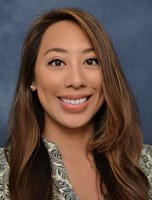
During the summer of 2013 under the mentorship of Dr. Dale Lupu at the George Washington University, School of Nursing, Center for Aging, Health & Humanities, I interned at the Academy. I wanted to learn more about Medicaid and Medicare, as well conduct health services research with a focus on federal health policies. My main project centered on the hospice Medicare benefit.
I learned a lot about social insurance and federal health policies on a level far beyond what textbooks could teach me. Witnessing expert testimonies on the Hill and seeing firsthand how science can inform policy was very exciting. I learned how to deliver an effective elevator speech, network with peers and influential health policy leaders, and collaborate with peers with various backgrounds.
I would urge up and coming interns to take advantage of opportunities to attend meetings on the Hill, as well as network with policy leaders during your internship. Start building a professional network. Work hard, but also have fun and get to know your fellow interns! Lastly, stay in touch with your mentor too. Four years after my internship has ended, I still touch base with my summer mentor and with my fellow interns from time to time.
